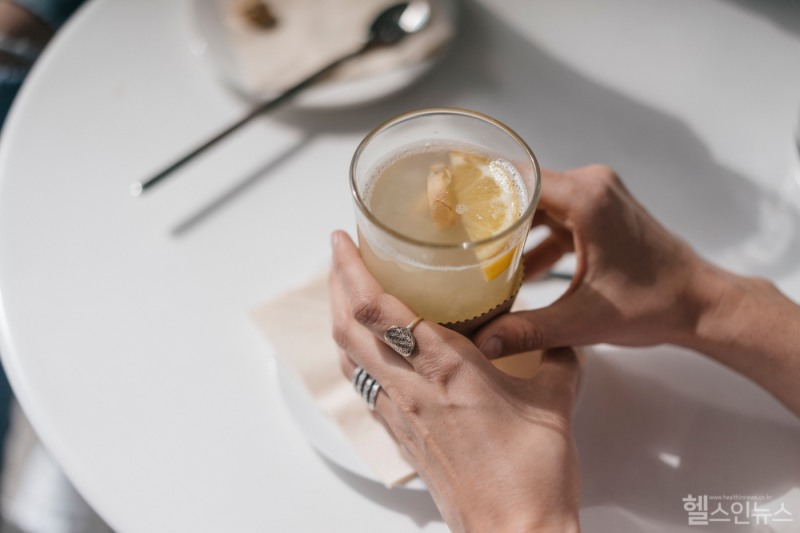Ginger, used as a medicinal herb in Korea since before the Goryeo Dynasty (918–1392), is often referred to as a 'divinely bestowed gift' for its health-promoting properties. With its warming properties, ginger tea bolsters immunity and protects respiratory health, serving as a reliable ally during the colder months.
Immune-Boosting Power of Ginger Tea
The primary benefit of ginger tea lies in its ability to strengthen the immune system. Rich in gingerol and shogaol—compounds with potent antioxidant and antibacterial properties—ginger tea helps shield the body from viruses and bacteria. Gingerol, in particular, is known for its strong antimicrobial effects, which can alleviate early cold symptoms and reduce the risk of recurrence.
Ginger also plays a beneficial role in supporting respiratory health. Shogaol exhibits antibacterial effects, helping to reduce phlegm and coughing while supporting lung function. Gingerol suppresses enzymes that trigger inflammation, easing the burden on bronchial tissues. This makes ginger tea particularly effective for relieving symptoms of seasonal allergic rhinitis and bronchitis.

Precautions for Specific Health Conditions
While ginger tea is beneficial, moderation is key. Experts recommend consuming 1–2 cups daily, equivalent to about 2–3 grams of ginger. Excessive intake may overstimulate gastric acid production, leading to heartburn, abdominal pain, or diarrhea.
Certain individuals should exercise caution. Because of its warming properties, ginger may worsen symptoms in individuals with fever or those prone to excessive body heat.
Additionally, ginger’s blood-thinning effects may interact with anticoagulant or antiplatelet medications, increasing bleeding risk. Those with conditions like hemorrhoids or gastric ulcers should avoid ginger tea to prevent worsening symptoms. For individuals with gastritis or peptic ulcers, drinking ginger tea on an empty stomach is not recommended, as its spicy components may irritate the stomach lining. It is safer to consume ginger tea after meals.
Versatile Ginger Tea Recipes for Every Taste
Traditionally served warm, ginger tea has evolved into a versatile beverage with recipes tailored to various preferences and health needs. The classic preparation is simple yet effective: thinly slice 20–30 grams of fresh ginger, simmer in 500 milliliters of water over low heat for 15–20 minutes, and strain.
For sore throats or early cold symptoms, honey ginger tea is a popular choice. Adding honey enhances the tea’s antibacterial properties, aiding symptom relief. A splash of lemon juice transforms it into lemon ginger tea, boosting vitamin C intake and soothing throat irritation.
For a richer flavor, try ginger tea with pear and jujube. This combination adds natural sweetness and is widely used for supporting immunity during winter. Yuzu ginger tea, blending the citrusy zest of yuzu with ginger’s warmth, has gained popularity for its fatigue-fighting and immune-boosting benefits.
In summer, iced ginger tea offers a refreshing twist. Cool a concentrated batch in the refrigerator and serve over ice for a crisp, invigorating drink. For a modern take, ginger syrup mixed with milk creates a ginger iced latte, rivaling café-style beverages.
Ginger tea’s blend of tradition and adaptability makes it a staple for health-conscious Koreans navigating seasonal changes. With the right precautions and creative recipes, this ancient remedy continues to offer warmth and wellness year-round.
Haeun Oh, HEALTH IN NEWS TEAM
press@hinews.co.kr





